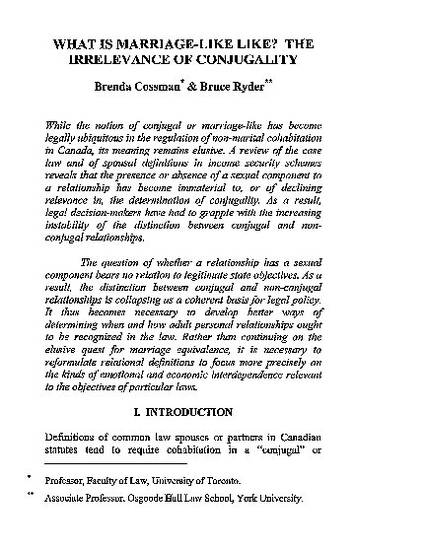
- Conjugality,
- interdependence,
- non-marital cohabitation,
- sexual component,
- spousal definition
While the notion of conjugal or marriage-like has become legally ubiquitous in the regulation of non-marital cohabitation in Canada, its meaning remains elusive. A review of the case law and of spousal definitions in income security schemes reveals that the presence or absence of a sexual component to a relationship has become immaterial to, or of declining relevance in, the determination of conjugality. As a result, legal decision-makers have had to grapple with the increasing instability of the distinction between conjugal and non-conjugal relationships. The question of whether a relationship has a sexual component bears no relation to legitimate state objectives. As a result, the distinction between conjugal and non-conjugal relationships is collapsing as a coherent basis for legal policy. It thus becomes necessary to develop better ways of determining when and how adult personal relationships ought to be recognized in the law. Rather than continuing on the elusive quest for marriage equivalence, it is necessary to reformulate relational definitions to focus more precisely on the kinds of emotional and economic interdependence relevant to the objectives of particular laws.
